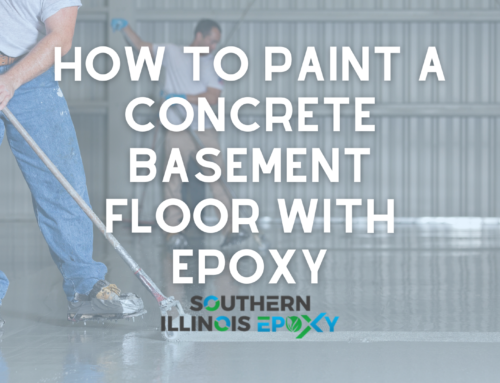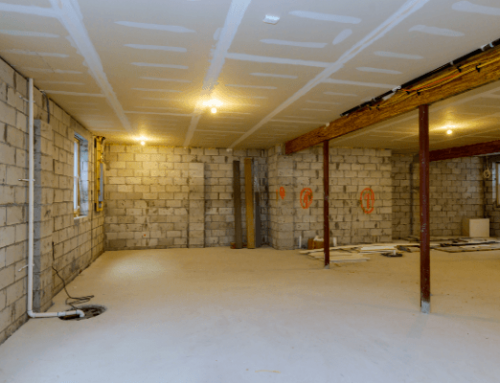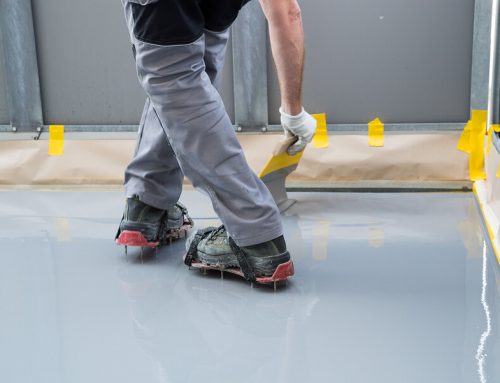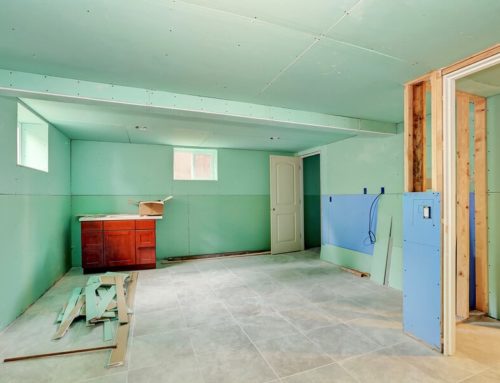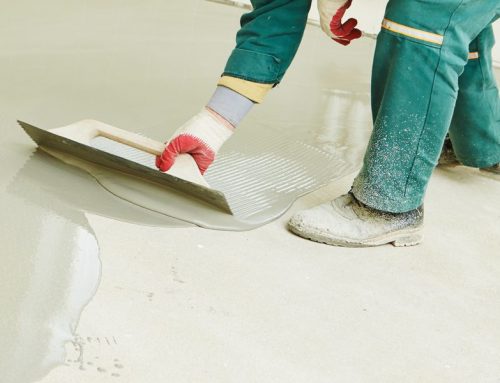Basement flooring takes place below ground level and is done using concrete in most cases. Unless you’ve sealed your concrete floor, it becomes prone to moisture buildups owing to the fact that concrete is highly porous. When water seeps through the concrete, it gives rise to stuff like mold, mildew, and efflorescence. As a result, this brings a foul smell that can cause discomfort and lead to health problems. Considering these consequences, it is important to know how to clean your concrete basement floor and improve the condition of your environment and increase its lifespan as well.
You don’t have to put up with the offensive smell in your home or get sick because of a dirty basement. Not anymore because we’ll teach you how to clean concrete basement floors and control the odor effectively.
Cleaning a Concrete Basement Floor: The Definitive Guide
While cleaning a concrete basement floor may seem to be a demanding task, it goes a long way in keeping your home neat. Not just that – it’s also an excellent way to protect your floor from damaging agents.
Note that how to clean a concrete basement floor depends on whether it is sealed or unsealed. Sealed concrete is resistant to spills, grime, rust, and other things that cause damage. Because of this, it’s easier to clean and maintain. If you have a mop, a broom, and some water, all you’ll need is to take a few minutes each day to clean the surfaces. Also, you’ll need to immediately address any spillages and soiling whenever they happen.
Unsealed concrete, on the other hand, attracts dust, debris and is prone to moisture. That’s why concrete that is not sealed becomes a little more demanding to clean compared to sealed concrete. So, how do you go about cleaning concrete?
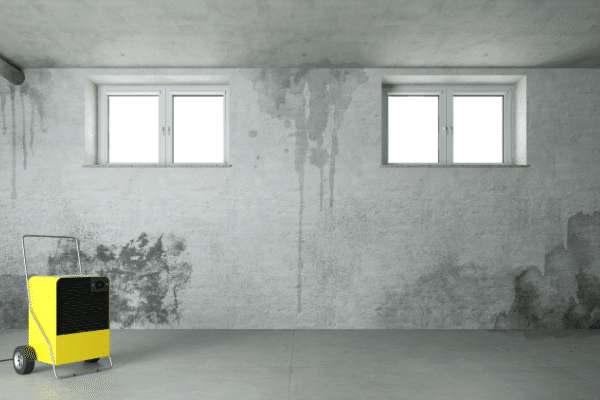
Stress-Free Ways to Clean a Concrete Basement Floor
Here are tips that will help you clean your concrete basement floor to keep your home or business premises looking fresh:
Sweep and Vacuum the Floor
Dust and lose debris accumulate on your concrete basement floor. So, use a soft-bristled broom to sweep the floor. Sometimes sweeping alone is not effective in removing all the dust. In this case, use a vacuum cleaner to remove the remaining dust after sweeping.
Get Rid of Fungal Growth
Basement floors tend to get stuffy from mildew and mold, especially when ventilation is inadequate. If you want to remove bad smell from your basement, ensure there’s proper air circulation. You can do this by opening the entrances and removing unused items in the basement. Next, mix approximately 2 ounces of household bleach per quart of clean water.
You can use a spray bottle to splash your basement floor and walls with the solution. Be sure to wear protective gloves, a facemask, and all your body is well covered while performing this task. Then use a nylon-bristled scrub brush to work the solution into the floor and walls. Wipe the surfaces with a mop and clean water.
Pro tip: Don’t use any bleaching agent on sealed concrete floors because bleach erodes concrete sealant.
Remove Efflorescence
You might have seen white powder on a concrete floor or wall. That’s what we call efflorescence. It’s a soluble salt that remains on concrete when water that seeped into it evaporates.
Use a stiff-bristled brush to remove the efflorescence and then wipe the place with a damp mop. But the best trick around protecting your concrete against efflorescence is to waterproof your basement floor and walls. Contact our top flooring contractors at Southern Illinois Epoxy to get the best basement waterproofing services. That assures maximum protection from moisture in your basement.
Eliminate Rust from Your Floor
Apply dry cement on areas stained with rust. Then use flagstone to rub the cement over the place. The stain will come out as you continue with the rubbing. You can also use lemon juice to remove the rust. You should know that using metallic scrub brushes on concrete leaves metal fibers in the pores of the structure. And that causes rusting on your concrete floor.
Use Dish Soap and Warm Water
Dish soap has a neutral PH, making it ideal for both sealed and unsealed concrete. Start by sweeping your basement floor and then sprinkle the soap on it. Pour warm water on the surface and scrub it with a soft-bristled brush. Use a mop and clean water to rinse the floor. Wring the mop as you rinse until there are no traces of the soap or stains on the floor.
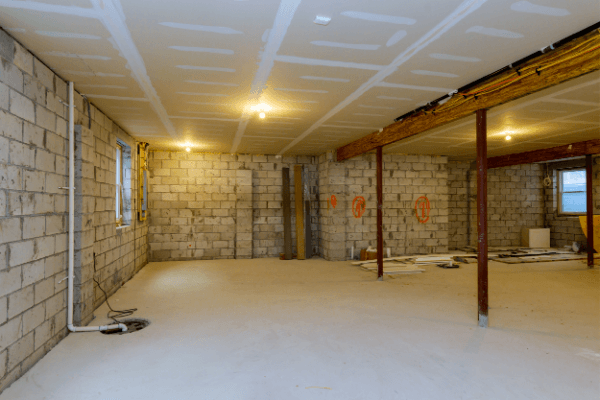
How to Scrub and Disinfect a Concrete Basement Floor
Scrubbing is an effective way to remove tough stains from your concrete basement floor. If you plan to scrub, always use a nylon stiff-bristled scrub brush and work your concrete stain remover directly in the affected areas. Scrub in circular motions after applying the stain remover and allowing it a few minutes to react with the stain.
When it comes to disinfecting your concrete basement floor, home bleach does the trick. It hampers the growth of mildew and mold. Besides, the solution is a perfect disinfectant that eradicates most disease-causing micro-organisms. Disinfecting your concrete basement floor is a DIY process you can handle. Follow the tip as we recommend above to get rid of fungal growth and to help you disinfect your basement floor.
Southern Illinois Epoxy Follows the Latest Trends in Concrete Basement Flooring
When you want to give your basement floor a fresher look, there are several basement flooring options available. We at Southern Illinois Epoxy are masters in custom modern basement flooring solutions. Our crew of flooring experts includes professionals specializing in concrete basement flooring and can help you get a floor you desire. You can be sure we’ll provide a durable floor at a cost that doesn’t strain your budget. Please reach out to us, and we’ll be more than glad to help.



